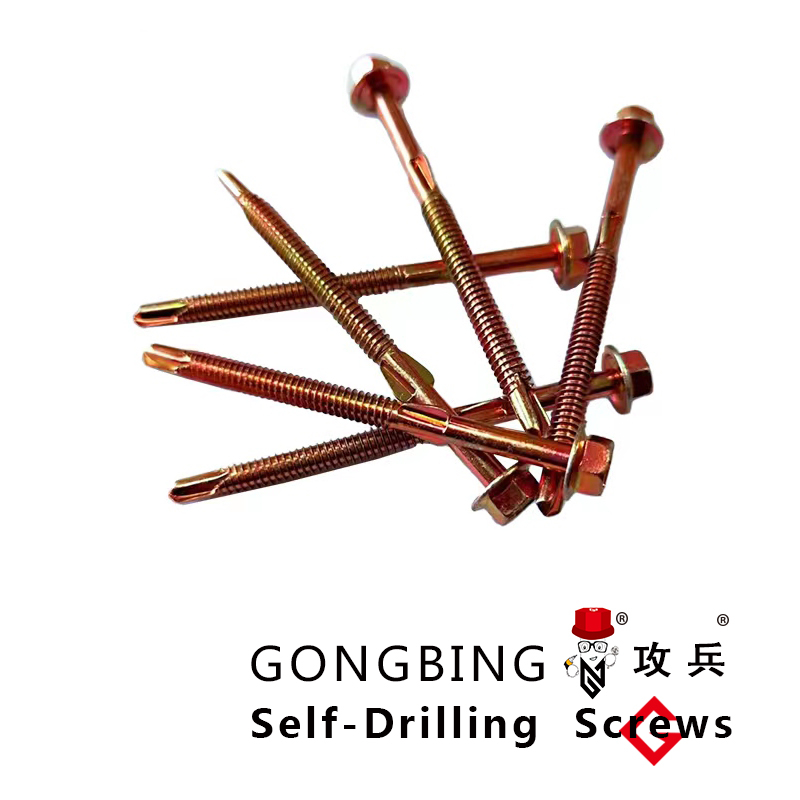self drilling bolts for metal
Self-Drilling Bolts for Metal A Comprehensive Guide
In the world of metal construction and structural engineering, the importance of reliable fastening solutions cannot be overstated. Among these solutions, self-drilling bolts have emerged as a favored choice for many professionals in the field. This article aims to delve into the features, advantages, applications, and considerations when using self-drilling bolts for metal.
What are Self-Drilling Bolts?
Self-drilling bolts, also known as self-tapping screws or drill screws, are specialized fasteners designed to drill their own holes as they are driven into metal sheets or other materials. Characterized by their pointed tips and spiral flutes, these bolts can cut through metal without the need for pre-drilled holes, streamlining the assembly process and saving valuable time on construction sites.
Features and Design
Self-drilling bolts are typically made from high-strength steel, often coated with materials such as zinc or other corrosion-resistant finishes to enhance durability. The design commonly includes a hexagonal head for easy tightening with wrenches and a thread profile that provides a secure grip upon installation. The threads are specifically engineered to reduce the risk of stripping, making them reliable for heavy-duty applications.
Advantages of Self-Drilling Bolts
1. Time Efficiency One of the most significant advantages of self-drilling bolts is the time saved during installation. Since they eliminate the need for pre-drilled holes, workers can avoid additional steps, allowing projects to progress faster.
2. Cost-Effectiveness The reduced labor time translates into lower labor costs. Additionally, since fewer tools and materials are needed (such as drill bits), overall project expenses can decrease.
3. Versatility Self-drilling bolts can be used in various metal materials, including steel, aluminum, and even certain plastics. This versatility makes them suitable for various applications, including roofing, siding, and structural connections.
4. Strong Connection Self-drilling bolts create a tight, secure connection that can handle significant loads. Their ability to penetrate tough materials efficiently means that they can provide excellent resistance to shear and tensile forces.
5. Ease of Use These bolts are relatively straightforward to install, requiring minimal tools. This ease of use is particularly beneficial for on-site applications where conditions may not be ideal for drilling.
self drilling bolts for metal

Applications
Self-drilling bolts are commonly found in several applications across various industries
- Construction They are extensively used in the construction of steel buildings and bridges, where strong and reliable fastening is crucial. - Automotive Many automotive manufacturers use self-drilling bolts for assembling various parts in vehicles due to their strength and efficiency. - Manufacturing In furniture manufacturing and appliance assembly, self-drilling bolts provide an excellent solution for secure and efficient assembly. - HVAC Installation These bolts are commonly used to fasten ductwork and various HVAC components due to their ability to penetrate metal quickly and securely.
Considerations When Using Self-Drilling Bolts
While self-drilling bolts offer numerous advantages, there are several factors to consider to ensure optimal performance
1. Material Thickness It is crucial to ensure that the thickness of the metal you are working with is suitable for self-drilling bolts. Typically, they work best on materials ranging from 18 gauge to 1/4 inch thick.
2. Bolt Size and Type Different applications may require different sizes and types of bolts. It is essential to choose the appropriate bolt to match the specific requirements of the job.
3. Installation Technique Proper installation is key to ensuring the integrity of the connection. Following the manufacturer's guidelines on torque specifications and installation procedures can prevent issues such as stripping or under-tightening.
4. Environmental Factors Consider the environmental conditions where the bolts will be used. Exposure to moisture or chemicals might necessitate the use of special coatings to prevent corrosion.
Conclusion
Self-drilling bolts for metal represent a remarkable solution in the world of construction and manufacturing. Their ability to combine efficiency, strength, and versatility makes them a go-to choice for professionals looking to optimize their fastening processes. By understanding the features, benefits, and considerations associated with these fasteners, users can make informed decisions that lead to successful project outcomes. As construction technology continues to evolve, self-drilling bolts will undeniably remain a staple in the toolkit of metalworking professionals.
-
Weatherproof Plastic Expansion Anchors for OutdoorNewsJun.06,2025
-
Sustainability in the Supply Chain: Eco-Friendly TEK Screws ProductionNewsJun.06,2025
-
Load-Bearing Capacity of External Insulation FixingsNewsJun.06,2025
-
Double Head Bolts: Enhancing Efficiency in Industrial MachineryNewsJun.06,2025
-
Corrosion Resistance in Chipboard Screws: Coatings for Wholesale DurabilityNewsJun.06,2025
-
Butterfly Toggle Bolts : Enhancing Structural ResilienceNewsJun.06,2025
